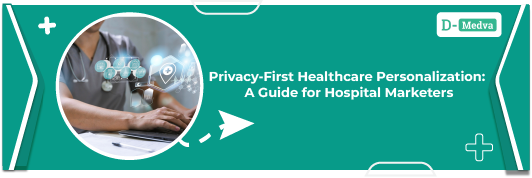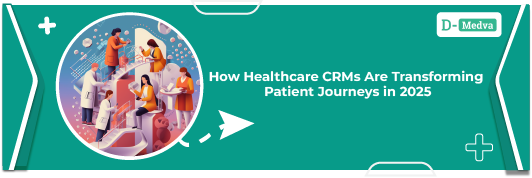Integrating AR/VR and Accessibility in Healthcare Tech
How are immersive technologies transforming patient care? Healthcare innovation has always aimed to improve quality care, access and experience. Today, augmented reality (AR) and virtual reality (VR) are no longer experimental tools – they’re actively reshaping patient journeys. Patients can use VR to walk through procedures before surgery, easing anxiety and improving understanding. AR overlays during diagnostics or telehealth visits enhance clarity by showing results in real time and contextualising medical data. Agentic AI takes this further. It enables self-operating systems that create, adapt and optimise immersive experiences on demand. For example, a hospital in Bengaluru uses AI-assisted VR modules to explain blood tests to children. Engagement jumped by 45% and appointment cancellations dropped. These are not just futuristic ideas – they’re real, measurable improvements in patient communication and trust. Combined, these technologies offer both emotional reassurance and clinical precision. How does Agentic AI simplify VR and healthcare integration? Creating immersive AR/VR content used to require entire teams of designers, developers and media producers. That barrier made it impractical for most clinics. Agentic AI solves this by generating 3D environments, adapting content for multiple platforms and localising languages automatically – all from simple patient scripts or educational outlines. A gynaecology clinic recently built an AR explainer about pelvic exams in Tamil, Hindi and English using AI, without hiring a single developer. The clinic reported not only improved patient understanding but also increased comfort during appointments. For mid-sized practices, this kind of automation makes immersive education tools affordable, fast to launch and easy to maintain across regions and languages. How is healthcare assistive technology evolving with immersive design? Accessibility is more than a compliance checkbox – it’s about equitable care delivery. When immersive experiences are designed with accessibility in mind, they become a key component of healthcare assistive technology. Agentic AI can automatically generate screen reader-friendly narration, adapt contrast for visual impairments and enhance haptic feedback for users with hearing limitations. We helped a cardiac rehab clinic in Kerala implement VR walk-throughs with voice guidance and gesture-based navigation. Patients with limited mobility reported better understanding of their treatment plans and felt more included in their own recovery. Can telemedicine services benefit from immersive tools? Absolutely. Telemedicine services have already changed how patients access care, but they’re often limited to static visuals and basic video calls. By integrating AR/VR with AI, healthcare providers can create dynamic experiences that are both educational and therapeutic. Think VR meditation rooms, interactive rehab exercises or mood-responsive therapy environments. A behavioural clinic in Pune integrated AI-driven VR sessions into its remote therapy model. The result? A 62% increase in therapy session completions. Agentic AI tracked user responses and adapted sessions in real time, making the experience more personal and effective. Looking to boost your remote care offering? Let’s map out a solution. Can immersive tech improve surgical training and skill retention? Definitely. AR and VR are transforming medical education by simulating surgical environments that feel realistic without the risk. Surgeons can rehearse procedures, practise rare or complex cases and even collaborate in virtual operating rooms. Agentic AI enhances these simulations by personalising difficulty levels based on trainee performance. Hospitals are also using AI-generated VR modules for post-operative skill refreshers, reducing error rates over time. For training centres and teaching hospitals, this means better outcomes and more confident practitioners. What role does patient feedback play in shaping immersive experiences? Patient-centric design is crucial for meaningful digital health tools. With Agentic AI, patient feedback can be directly integrated into immersive workflows. Whether it’s adjusting a VR therapy environment based on comfort levels or improving an AR onboarding module, data from real users helps refine these tools. We worked with a dermatology clinic to update their AR skin treatment explainer after feedback from elderly patients. Changes in font size, narration pacing and colour contrast made it more accessible and led to a 28% increase in video completions. Immersive tech should feel human – and that means listening. Is immersive healthcare tech only for big hospitals? Not anymore. AI-powered modular AR/VR tools have brought immersive healthcare within reach of even the smallest practices. A 12-bed paediatric clinic in Coimbatore created an AR colouring book series that tracked which topics children engaged with most. Built for under ₹40K, it boosted repeat visits and made health education fun and memorable. Small teams can start with low-cost wins like turning a static explainer video into a VR experience or adding simple AR instructions for at-home care. Looking to integrate healthcare assistive technology with minimal overhead? Schedule a free consultation and we’ll help you get started. About D-Medva D-Medva is a healthcare-focused digital marketing agency based in India. We help hospitals, specialty clinics and wellness providers leverage smart technologies like Agentic AI, telemedicine services and immersive platforms to create a connected, compliant and compassionate patient journey. From education to engagement, our solutions are designed to improve outcomes and build long-term trust. Let’s build a more human digital future – book your consultation today.










